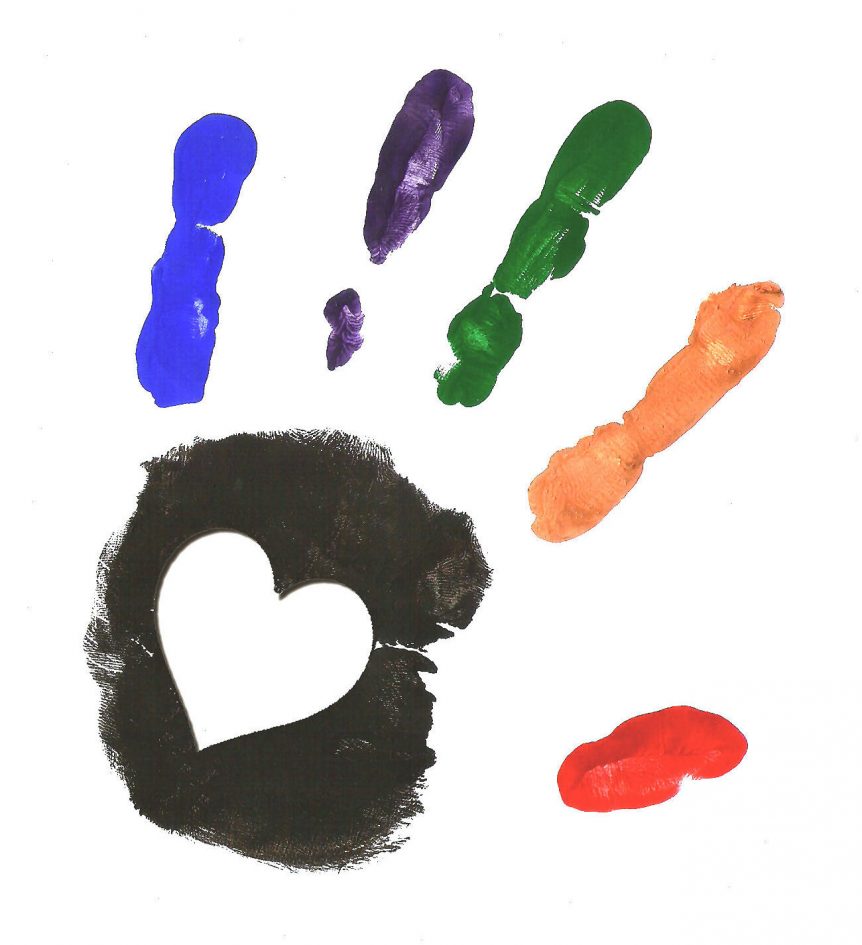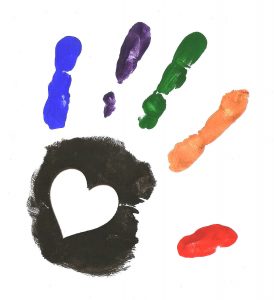As I’ve mentioned before, my personal quiet time this year is a Bible Read Thru with a group of folks on the YouVersion Bible App. We were reading through Ezra, Nehemiah, and Esther as the racial tension escalated over the past weeks and months, and I wrote an article for this newsletter.
Just yesterday, however, I felt the Lord added more to the message He was speaking to my heart on this issue–so I added that little bit to this article late last night.
I’ve prayerfully considered just remaining silent. It’s scary to speak out on such an emotionally-charged topic. But my desire to say something helpful has overcome my fear of saying something wrong.
Please know that my heart aches for those who have felt the sting of injustice–regardless of the color of their skin–and I hope to apply the most powerful balm we have–God’s Word. So, here goes…
Nehemiah’s History
Let’s put Nehemiah’s name in order of Bible-story greats to get a clearer understanding of his place in Bible history:
- Adam & Eve
- Noah
- Abraham
- Isaac
- Jacob (name changed to Israel)
- 12 sons (become 12 tribes while in Egypt)
- Moses
- Joshua
- Judges (Samson)
- Samuel (last judge)
- Saul
- David
- Solomon
- Israel divides into 2 nations: Israel (northern 10 tribes) and Judah (tribe of Judah and Benjamin)
- Lots of bad kings – a few good ones
- Israel exiled to Assyria (Hezekiah)
- Judah exiled to Babylon (Daniel)
- Persia conquers Babylon (Ezra, Nehemiah, Esther – Whew!)
The Persian Emperor, Cyrus, sent a group of exiles back to Jerusalem to rebuild. Unfortunately, the Jewish exiles met with fierce discrimination from their foreign neighbors, so the Temple wasn’t completed until years later.
When Nehemiah became cupbearer to a later Persian king, he heard of the hardship back in Jerusalem and was sad enough that the king noticed…
“The king said to me, ‘What is it you want?’ Then I prayed to the God of heaven, and I answered the king, ‘If it pleases the king and if your servant has found favor in his sight, let him send me to the city in Judah where my ancestors are buried so that I can rebuild it.’” Nehemiah 2:4-5
Adding to the Job Description
As we read the Book of Nehemiah, we discover that he was a great motivator who did LOTS more than rebuild a wall. However, both he and Ezra recorded a confusing (and disturbing) story that seems like discrimination at first glance:
“On that day the Book of Moses was read aloud in the hearing of the people and there it was found written that no Ammonite or Moabite should ever be admitted into the assembly of God, because they had not met the Israelites with food and water but had hired Balaam to call a curse down on them. (Our God, however, turned the curse into a blessing.) When the people heard this law, they excluded from Israel all who were of foreign descent.” Nehemiah 13:1-3
The Book of Ezra goes on to describe the process of segregation, which included forcing men to divorce and put away foreign women and their children. Was it discrimination, or were they being obedient to GOD’S LAW? Gulp. The Law did say not to marry…
So Nehemiah and Ezra enforced the Law the way THEY saw fit.
Why Would God Segregate?
First, let’s remember this is recorded in the OLD TESTAMENT, before Jesus provided the New Covenant of grace through His Blood. God had chosen a single man’s family, making them special—not better, but special. Abraham, Isaac, Jacob (renamed Israel—Gen.32:22-32), and his descendants were given the task of maintaining relationship with Yahweh throughout history until the Snake-Crusher (Messiah) restored the Garden relationship lost when Adam and Eve sinned:
“[God said to the serpent,] And I will put enmity between you and the woman, and between your offspring and hers; he will crush your head, and you will strike his heel.” Genesis 3:15
Abraham’s family was tasked with recording Yahweh’s activity, His promises, and His covenant—in order that someday, through them, Yahweh would bless the whole world.
“I will make you into a great nation, and I will bless you; I will make your name great, and you will be a blessing. I will bless those who bless you, and whoever curses you I will curse; and all peoples on earth will be blessed through you.” Genesis 12:2-3
But Nehemiah didn’t live during the time of that whole-world blessing, so it was crucial that Israel’s descendants maintained that pure lineage—especially when returning from exile, since that very act was a fulfillment of God’s Word.
“Even if you have been banished to the most distant land under the heavens, from there the Lord your God will gather you and bring you back. He will bring you to the land that belonged to your ancestors, and you will take possession of it. He will make you more prosperous and numerous than your ancestors.” Deuteronomy 30:4-5
Though there are several examples of foreigners whose hearts were faithful to Yahweh (Melchizedek, Ruth, Rahab), we see repeated encounters with pagan nations that led Israel astray and diluted their trust in the one true God. The Law’s “discrimination” held a very real purpose–their protection.
So Nehemiah Did It Right?
I wish Nehemiah’s story ended with a rousing tribute to his giant faith, but it doesn’t. After he completed the work in Jerusalem, he returned to serve Persia’s king. However, within a year, he went back to Jerusalem and found the people grievously sinning.
Sort of like when you tell your kids not to play in the mud; you go inside for three minutes; come back outside and…yep, they’re playing in the mud!
The exiles found some pretty big mud puddles. Nehemiah kicked one guy out of the Temple (who had been using it as a bed ‘n’ breakfast). He enforced Sabbath Law. Then things got out of hand…he rebuked, cursed, beat, and pulled priests’ hair because they’d married foreign women. (Stop a moment and imagine this demoralizing, awful scene.) Finally, Nehemiah forced them to take oaths saying they wouldn’t give their children to foreigners.
Actions vs. Attitude
Many times I find it difficult to glean emotion and motivation from the factual accounts in Scripture. Did Nehemiah feel any compassion for the women or children he left homeless? Any remorse when he lost control? Did he speak some sort of encouragement to those in Jerusalem before returning to his real job in Persia? Did he at least pray FOR those he was leaving behind?
He prayed, but the emotion or motivation I see in this prayer is as disturbing as his actions…
“Remember me for this, my God, and do not blot out what I have so faithfully done for the house of my God and its services… Remember me for this also, my God, and show mercy to me according to your great love… Remember me with favor, my God.” Nehemiah 13:14, 22, 31 (emphasis added)
His was a heart that had turned from zeal for the Lord to zeal for himself. He had enforced the Law according to his understanding and used violence and humiliation under the guise of authority.
I believe Nehemiah was a faulty leader, but does that mean God’s Law was wrong or that all authority was corrupt? No.
It’s All About the Heart
Consider the difference between Nehemiah’s self-motivated zeal and Moses’s self-sacrifice leadership when he begged God for the lives of the stiff-necked people he led out of Egypt.
“But now, please forgive their sin—but if not, then blot me out of the book you have written.” Exodus 32:32
Being willing to lay down our lives for others—that’s pleasing to God. But Moses was talking about his own people, right? How did this man, who God called friend, feel about those outside of Israel?
“Miriam and Aaron began to talk against Moses because of his Cushite wife, for he had married a Cushite.” Numbers 12:1
“Cush” is Ethiopia. Moses’s wife was black. Evidently, Miriam and Aaron weren’t thrilled, but discrimination wasn’t an issue for Moses who grew up in Pharaoh’s palace with Egyptians (likely darker skinned). His first wife, Zipporah, was Midianite, and likely had dark skin as well. And BTW, Abraham, Isaac, and Jacob were Jewish–Middle-Eastern–not rosy-cheeked Caucasians.
Though God’s Law is very clear about keeping the nation of Israel HOLY (which means separate), it’s not a mandate for discrimination.
He’s also extremely clear that God Himself defines leaders by their heart’s condition rather than outward appearance. Remember what he said to the prophet Samuel when he thought David’s bigger, stronger brothers were surely God’s choice for king?
“The Lord does not look at the things people look at. People look at the outward appearance, but the Lord looks at the heart.” 1 Samuel 16:7
Who Are “My” People?
Paul was also a servant leader like Moses…
“For I could wish that I myself were cursed and cut off from Christ for the sake of my people, those of my own race, the people of Israel. Theirs is the adoption to sonship; theirs the divine glory, the covenants, the receiving of the law, the temple worship and the promises. Theirs are the patriarchs, and from them is traced the human ancestry of the Messiah….” Romans 9:3-5
Though Paul was proud of his Jewish heritage and a “Pharisee among Pharisees,” he recognized that the ground was level at the foot of the Cross through the shed Blood of Jesus.
“There is neither Jew nor Gentile, neither slave nor free, nor is there male and female, for you are all one in Christ Jesus. If you belong to Christ, then you are Abraham’s seed, and heirs according to the promise.” Galatians 3:28-29
Jesus Christ was the fulfillment of Abraham’s prophesied blessing to all nations. Part of that blessing is the Church and the unity we CAN have through the power of His Spirit. We can only become the complete Church when ALL believers embrace brothers and sisters different than ourselves–red and yellow, black and white–as the children’s song says.
What Can I Do?
I hope you’ve already been praying for unity. If not, start there! Secondly, I’m working to change my mindset: Not color-focused. Not even color-blind. But color-aware—celebrating the glorious differences that can bring such rich diversity to the Body of Christ.
As a white woman I’ve seldom experienced racial discrimination. But must I experience it to empathize with those who weep? Must I understand it to offer comfort to those who are afraid? Humbly offering compassion and empathy to a brother or sister-in-Christ who is afraid or angry or sad is a good first step in bridging the divide between us.
And I want to encourage those in authority over us who are servant-leaders, whose hearts are determined to bravely serve our communities without discrimination.
Is there someone you can reach out to today—just to let them know your heart is burdened with them for the injustices we’ve seen in the past weeks, months, and years? It’s a place to start. Let the Lord guide you from there.
Our nation needs our prayers, but God is not on vacation. He is actively at work even in these most difficult days. Those of us who know Him, remember: We are citizens of heaven. On earth, we are simply His ambassadors, telling others about our heavenly home. So hold loosely to the things in this life, because it’s a person’s eternity that matters to Jesus. Shouldn’t that be what matters most to us?
Read Philippians 3 to adjust your focus. It sure helped me!
(I’ve turned public commenting off, but if you’d like to comment, please email me privately at mesu@mesuandrews.com. Thank you!)




